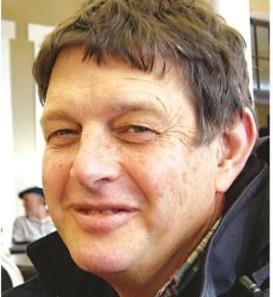
The Ireland-based fresh produce group, Total Produce, has announced the completion of a R136m (€13.6m) transaction to increase its shareholding in South African company Capespan Group.
With Total Produce holding a stake of 25.3 per cent in the Capespan Group, the Ireland-based company now stands as the second biggest shareholder.
Last December, Total produce announced that it had sold its 50 per cent shareholding in Capespan's European distribution business, Capespan International Holdings, back to the South African group in exchange for an additional 20m shares in Capespan Group, as well as around R90m (€9m) in cash. The deal has been approved by the regulators and by Capespan’s shareholders.
Zeder Investments, with nearly 40 per cent of the shares, is the biggest shareholder. Along with the shares held by other non-fruit industry interests, it is now clear that the Capespan Group has just about completed its move from an entirely grower-dominated Group to one in which more than 70 per cent of the shareholding is in the hands of non-grower entities.
“This,” said an observer, “has opened the door for a formal listing on the stock exchange, and this move cannot be far away.”
This demonstrates the major change in grower attitudes in the South African fruit sector.
The Capespan Group, its assets, particularly in the ports, and its brands were once regarded as the holy grail of the industry.
In the days of Unifruco, at the beginning of the 1990s, chairman David Gant just about lost his job overnight merely for using the words “unlocking the wealth” and suggesting a listing of Unifruco.
Today, most of the leaders in the fruit industry will simply shrug their shoulders at the latest news as they move forward in building their own businesses in the deregulated era.
At the beginning of the Capespan saga, the Group handled close to 80m cartons of South African fruit in its first year of operation. Today the Bellville-based operation handles the procurement of no more than 25m cartons. Many growers have long been working directly with the Group’s overseas entities, which has led to a scaling-down of local operations, with a series of restructurings taking place over the past decade.
While the procured volumes at the South African operations have declined, the Group’s port operations, once jealously guarded as strategic assets of the industry and which were handed over to the Capespan Group when the regulated structures were disbanded, have become serious money-spinners.
Recent labour unrest at the country’s container terminals has enhanced the strategic importance of these Capespan-controlled reefer terminals. Analysts say the new shareholder groupings, which may be eyeing a listing, will view these terminals as extremely important structures in the Group that will boost future net asset growth.



